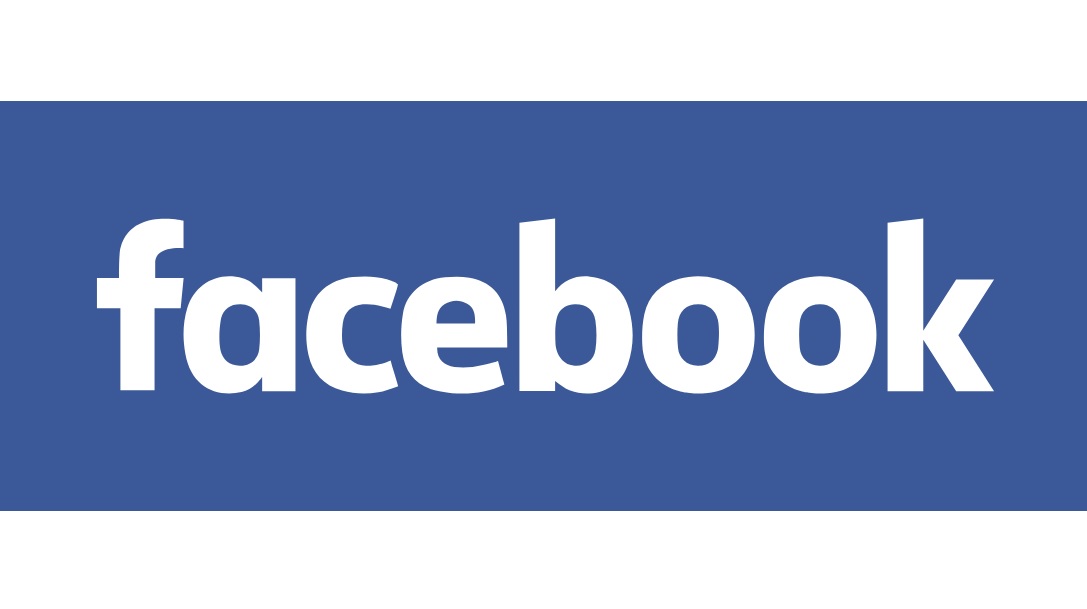Facebook, Hot Seat, Day Two — House Energy & Commerce Committee Hearing
This is a dedicated post to capture your comments about Facebook CEO Mark Zuckerberg’s testimony before the House Energy & Commerce Committee today.
After these two hearings my head is swimming with Facebook content, so much so that I had a nightmare about it overnight. Today’s hearing combined with the plethora of reporting across the internet is only making things more difficult for me to pull together a coherent narrative.
Instead, I’m going to dump some things here as food for further consideration and maybe a possible future post. I’ll update periodically throughout the day. Do share your own feedback in comments.
Artificial Intelligence (AI) — every time Mark Zuckerberg brings up AI, he does so about a task he does not want to employ humans to do. Zuckerberg doesn’t want to hire humans even if it means doing the right thing. There are so many indirect references to creating automated tools that are all substitutions for labor that it’s obvious Facebook is in part what it is today because Facebook would rather make profits than hire humans until it is forced to do otherwise.
Users’ control of their data — this is bullshit whenever he says it. If any other entity can collect or copy or see users’ data without explicit and granular authorization, users do not have control of their data. Why simple controls like granular read/not-read settings on users’ data operated by users has yet to be developed and implemented is beyond me; it’s not as if Facebook doesn’t have the money and clout to make this happen.
Zuckerberg is also evasive about following Facebook users and nonusers across the internet — does browsing non-Facebook website content with an embedded Facebook link allow tracking of persons who visit that website? It’s not clear from Zuckerberg’s statements.
Audio tracking — It’s a good thing that Congress has brought up the issue of “coincident” content appearing after users discuss topics within audible range of a mobile device. Rep. Larry Buschon (R-Indiana) in particular offered pointed examples; we should remain skeptical of any explanation received so far because there are too many anedotes of audio tracking in spite of Zuckerberg’s denials.
Opioid and other illegal ads — Zuckerberg insists that if users flag them, ads will be reviewed and then taken down. Congress is annoyed the ads still exist. But at the hear of this exchange is Facebook’s reliance on users performing labor Facebook refuses to hire to achieve the expected removal of ads. Meanwhile, Congress refuses to do its own job to increase regulations on opioids, choosing instead to flog Facebook because it’s easier than going after donors like Big Pharma.
Verification of ad buyers — Ad buyers’ legitimacy based on verification of identity and physical location will be implemented for this midterm election cycle, Zuckerberg told Congress. Good luck with that when Facebook has yet to hire enough people to take down opioid ads or remove false accounts of public officials or celebrities.
First Amendment protections for content — Congressional GOP is beating on Facebook for what it perceives as consistent suppression of conservative content. This is a disinfo/misinfo operation happening right under our noses and Facebook will cave just like it did in 2016 while news media look the other way since the material in question isn’t theirs. Facebook, however, has suppressed neutral to liberal content frequently — like content about and images featuring women breastfeeding their infants — and Congress isn’t uttering a peep about this. Congress also isn’t asking any questions about Facebook’s assessments of content
Connecting the world — Zuckerberg’s personal desire to connect humans is supreme over the nature and intent of the connections. The ability to connect militant racists, for example, takes supremacy (literally) over protecting minority group members from persecution. And Congress doesn’t appear willing to see this as problematic unless it violates existing laws like the Fair Housing Act.
More to come as I think of it. Comment away.
UPDATE — 2:45 PM EDT — I’m gritting my teeth so hard as I listen to this hearing that I’ve given myself a headache.
Terrorist content — Rep. Susan Brooks (R-Indiana) asked about Facebook’s handling of ISIS content, to which Zuckerberg said a team of 200 employees focus on counterintelligence to remove ISIS and other terrorist content, capturing 99% of materials before they can be see by the public. Brooks further asked what Facebook is doing about stopping recruitment.
What. The. Fuck? We’re expecting a publicly-held corporation to do counterintelligence work INCLUDING halting recruitment?
Hate speech — Zuckerberg used the word “nuanced” to describe the definition while under pressure by left and right. Oh, right, uh-huh, there’s never been a court case in which hate speech has been defined…*head desk*
Whataboutism — Again, from Michigan GOPr Tim Walberg, pointing to the 2012 Obama campaign…every time the 2012 campaign comes up, you know you are listening to 1) a member of Congress who doesn’t understand Facebook’s use and 2) is working on furthering the disinfo/misinfo campaign to ensure the public thinks Facebook is biased against the GOP.
It doesn’t help that Facebook’s AI has failed on screening GOP content; why candidates aren’t contacting a human-staffed department directly is beyond me. Or why AI doesn’t interact directly with campaign/candidate users at the point of data entry to let them know what content is problematic so it can be tweaked immediately.
Again, implication of discrimination against conservatives and Christians on Facebook — Thanks, Rep. Jeff Duncan, waving your copy of the Constitution insisting the First Amendment is applied equally and fairly. EXCEPT you’ve missed the part where it says CONGRESS SHALL MAKE NO LAW respecting an establishment of religion, or prohibiting the free exercise thereof; or abridging the freedom of speech, or of the press…
The lack of complaints by Democratic and Independent representatives about suppression of content should NOT be taken to mean it hasn’t happened. That Facebook allowed identified GOP-voting employees to work with Brad Parscale means that suppression happens in subtle ways. There’s also a different understanding between right and left wings about Congress’ limitation under the First Amendment AND Democrats/Independents aren’t trying to use these hearings as agitprop.
Internet service — CONGRESS NEEDS TO STOP ASKING FACEBOOK TO HELP FILL IN THE GAPS BETWEEN NETWORKS AND INTERNET SERVICE PROVIDERS THEY HAVE FAILED TO REGULATE TO ENSURE BROADBAND EVERYWHERE. Jesus Christ this bugs the shit out of me. Just stop asking a corporation to do your goddamned jobs; telcos have near monopoly ensured by Congress and aren’t acting in the best interest of the public but their shareholders. Facebook will do the same thing — serve shareholders but not the public interest. REGULATE THE GAP, SLACKERS.
3:00 PM thank heavens this beating is over.
Three more thoughts:
1) Facial recognition technology — non-users should NEVER become subjected to this technology, EVER. Facebook users should have extremely simple and clear opt-in/opt-out on facial technology.
2) Medical technology — absolutely not ever in social media. No. If a company is not in the business of providing health care, they have no business collecting health care data. Period.
3) Application approval — Ask Apple how to do it. They do it, app by app. Facebook is what happens when apps aren’t approved first.
UPDATE — 9:00 PM EDT — Based on a question below from commenter Mary McCurnin about HIPAA, I am copying my reply here to flesh out my concerns about Facebook and medical data collection and sharing:
HIPAA regulates health data sharing between “covered entities,” meaning health care clearinghouses, employer-sponsored health plans, health insurers, and medical service providers. Facebook had secretly assigned a doctor to work on promoting a proposal to some specific covered entities to work on a test or beta; the program has now been suspended. The fact this project was secret and intended to operate under a signed agreement rather than attempting to set up a walled-off Facebook subsidiary to work within the existing law tells me that Facebook didn’t have any intention of operating within HIPAA. The hashing concept proposed for early work but still relying on actual user data is absurdly arrogant in its blow off of HIPAA.
Just as disturbing: virtually nothing in the way of questions from Congress about this once-secret program. The premise which is little more than a normalized form of surveillance using users’ health as a criteria is absolutely unacceptable.
I don’t believe ANY social media platform should be in the health care data business. The breach of U.S. Office of Personnel Management should have given enough Congress enough to ponder about the intelligence risks from employment records exposed to foreign entities; imagine the risks if health care data was included with OPM employment information. Now imagine that at scale across the U.S., how many people would be vulnerable in so many ways if their health care information became exposed along with their social records.
Don’t even start with how great it would be to dispatch health care to people in need; we can’t muster the political will to pay for health care for everybody. Why provide monitoring at scale through social media when covered entities can do it for their subscriber base separately, and apparently with fewer data breaches?
You want a place to start regulating social media platforms? Start there: no health care data to mingle with social media data. Absolutely not, hell to the no.


![[Photo: Paul Rysz via Unsplash]](https://www.emptywheel.net/wp-content/uploads/2017/08/SolarEclipse_PaulRysz-Unsplash.jpg)
